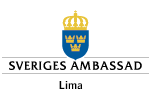![]() For markets to flourish, and as the Peruvian economist Hernando de Soto has recently argued, private property rights will need to move center stage. Not only are they necessary for economic growth, they are also necessary for long-term political stability in the region. It was, after all, the widespread trampling of the property rights of the “common man” that helped to fuel the Arab Spring.
For markets to flourish, and as the Peruvian economist Hernando de Soto has recently argued, private property rights will need to move center stage. Not only are they necessary for economic growth, they are also necessary for long-term political stability in the region. It was, after all, the widespread trampling of the property rights of the “common man” that helped to fuel the Arab Spring.
However, history suggests that the Middle East will need more than markets if it is to compete in the modern day technological race. It took two additional factors for the West to push ahead of the rest of the world a little more than two centuries ago: the Enlightenment and the empowerment of women. While they may manage to adopt some market reforms, not all Arab states will find these two additional ingredients easy to copy.
The Enlightenment took place in Europe from the late 17th century and heralded a new more scientific, rational and self-interested way of looking at the world. But it was not only an intellectual movement – it was, as the economic historian Joel Mokyr has written, absolutely vital for the economy. Its power comes from the fact that it is only when people hold a scientific view of the world that material progress becomes possible. Without it, we look to magic, fate and heavenly forces to solve our problems. Fasting, praying and concerns about the afterlife substitute for activities that lead to material improvement and progress. With the Enlightenment, however, a whole new spirit developed in 18th and 19th century Europe, one of openness to new ideas, empirical testing and tolerance.
Read the rest of the article on Bloomberg


